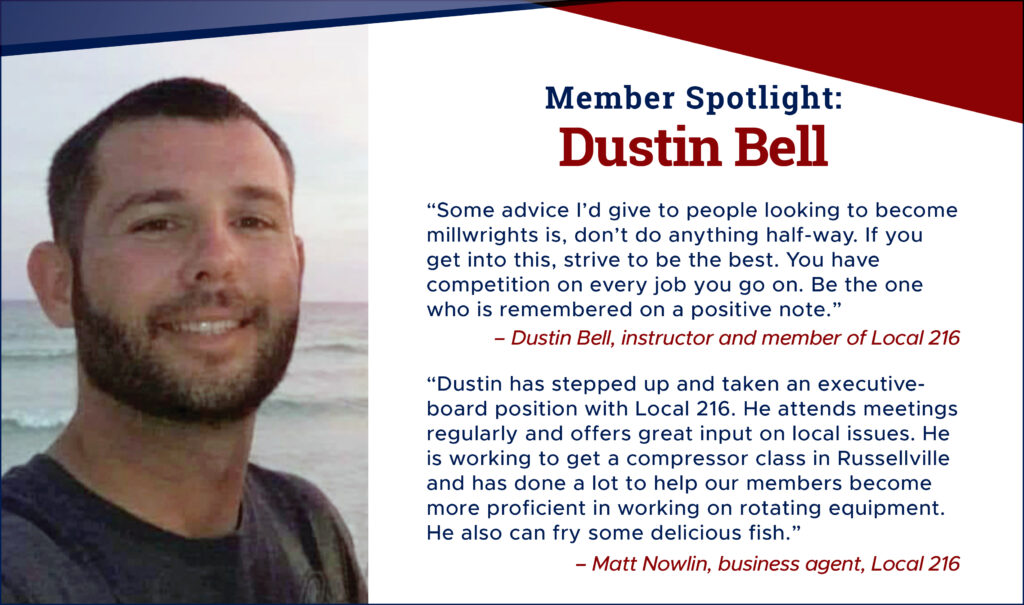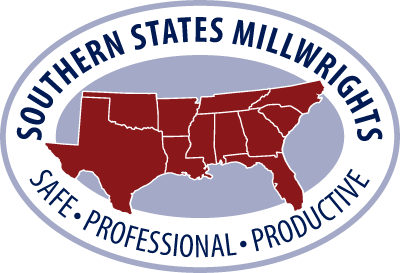
Dustin Bell of Atkins, Arkansas, joined Local 216 in 2015 and worked as a foreman for Universal Plant Services. “My specialty was reciprocating compressors, and I always enjoyed working on them,” he says.
In April, Bell began teaching at the Russellville, Arkansas, training center. He is now a full-time instructor. Learn more about him in the Q&A below.
Q: When did you become a union millwright and why?
A: I joined Local 216 in 2015. I was brought in by my father-in-law, Toby Pitts. The benefit package was great, and the pay was far better than anything in my area. I wanted to make sure that I could give my wife Kristi and stepson Jaxon the best life possible. The union was able to provide that. The only regret I have is not joining sooner.
Q: What is the most challenging thing about being a millwright?
A: I would say the most challenging thing is being union. I like a challenge, and we are held to a higher standard. I was lucky enough to come up under [retired millwright instructor] Steve Carr. Steve always emphasized union pride, values, and quality to his apprentices. This is something that we still preach to this day.
Q: How did you overcome adversity and adjust to the ever-changing conditions that come with being a millwright?
A: When I traveled and worked in the field, I really looked forward to the adversity and the changes. One of the things that made me love what I did so much was that every day was different and a new challenge.
Q: Was your family been supportive of your career choice (considering millwrights are usually on the go)?:
A: I’ve been happily married to my wife for 19 years. She always supported me. She hated me being gone, but she always understood that it was to create a better life for us.
Q: What is your daily routine as an instructor?
A: I love to instruct. I arrive at the apprenticeship by 6 a.m. I discuss the lesson for the day with our coordinator, Aaron Hall, and look into the materials that may be needed for the following week’s lesson. At 7 a.m. we start class. I try to start each class day off with a positive conversation between me and my students. We go through each chapter, and then we have a contest to see who is retaining the most information. This also shows me if there is something I need to reiterate. If there is a project for that class, we head to the shop and get our hands dirty. It’s kind of a nice break from the classroom.
After lunch, before diving back into the curriculum, we generally have some safety talks and discuss what jobs they are currently on and what work they are doing there.
Q: What are your long-term goals in this field?
A: I’m honestly there. I plan to retire as an instructor of Local 216. We send out some of the best millwright apprentices in the country, and I’m just blessed to be part of it.
Q: What has been your favorite job and why?
A: I’ve had a lot of good ones. When I was on the road, I was blessed to work around some great millwrights and mentors. But if I could only choose one, I’d say being an instructor. I get to be home with my wife every night and really enjoy the team I get to work with.
Q: Do you have any hobbies?
A: I’m an avid tournament bass angler.
